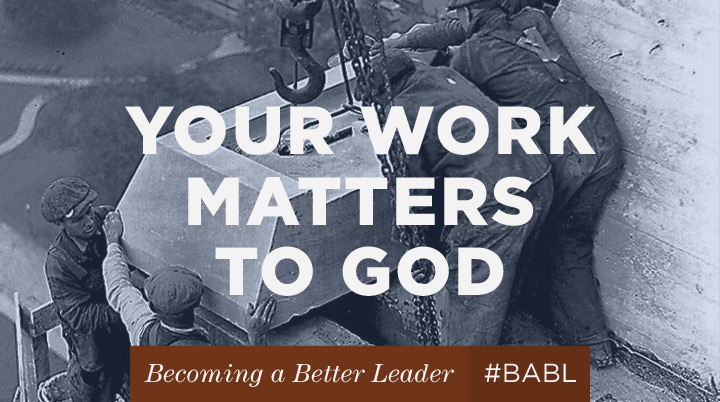Latest
-
Objections to the Christian Faith from the Unchurched and De-Churched
 Tue Dec 02, 2014
Tue Dec 02, 2014
by Resurgence -
Craig Groeschel: We Innovate for Jesus
 Tue Oct 14, 2014
Tue Oct 14, 2014
by Resurgence -
Mark Driscoll: Revelation
 Tue Oct 07, 2014
Tue Oct 07, 2014
by Resurgence -
RESURGENCE LEADERSHIP #034: JOHN PIPER, WHY I TRUST THE SCRIPTURES, PART 2
 Tue Sep 30, 2014
Tue Sep 30, 2014
by Resurgence -
Resurgence Leadership #033: John Piper, Why I Trust the Scriptures, Part 1
 Tue Sep 23, 2014
Tue Sep 23, 2014
by Resurgence

Archives
Your work matters to God

Last fall, hip-hop artist Lecrae Moore spoke on the importance of engaging culture from a Christian perspective. Speaking at the 2012 Resurgence Conference, Lecrae told the audience:
God has structured things for his glory and his goodness and humanity is directing it in evil or good ways. If you are going to engage culture, it’s about taking the things you are skilled at and asking, “How can I direct them in a good way?”
Moore’s comments are part of a renewed interest among Christians regarding the biblical doctrine of work.
This doctrine teaches that all things come under the lordship of Christ, including the work of our vocations. Our work matters to God. As human beings created in the image of God, we work and create as a reflection of that image. The work of our hands is intended to serve three great ends:
- To glorify God
- To further the kingdom of God
- To serve the common good
The biblical doctrine of work is one of the most powerful means God provides for us to shape and influence culture. Yet today we hear many Christians say that we should not be involved in shaping culture.
People who say this are supporting the social status quo, whether they agree with it or not. A few years ago, Tim Keller had this to say:
When Christians work in the world, they will either assimilate into their culture and support the status quo or they will be agents of change. This is especially true in the area of work. Every culture works on the basis of a “map” of what is considered most important. If God and his grace are not at the center of a culture, then other things will be substituted as ultimate values. So every vocational field is distorted by idolatry.
When Christians do their jobs with excellence and accountability, in a distinctively Christian manner, they cannot help but have a profound effect on the world around them. Thomas Cahill, in his book How the Irish Saved Civilization, tells how Christian monks in the Middle Ages moved out of Ireland and through pagan Europe. Along the way, they established academies, universities, and hospitals. The monks transformed local economies and care for the poor and unfortunate through these new institutions.
The Irish monks’ goal was not to change the pagan culture into the church. Instead, their vocation was inspired by the gospel, and that changed the way they carried out their work. They worked for the flourishing of mankind, rather than strictly for themselves.
Christians today have a similar opportunity. If we are serious about the truth of Christianity, we need to engage in cultural renewal. Like Moore encourages, we need to “take the things we’re good at” and “direct them in a good way,” a way that serves the common good of our culture and the kingdom, for the glory of God.